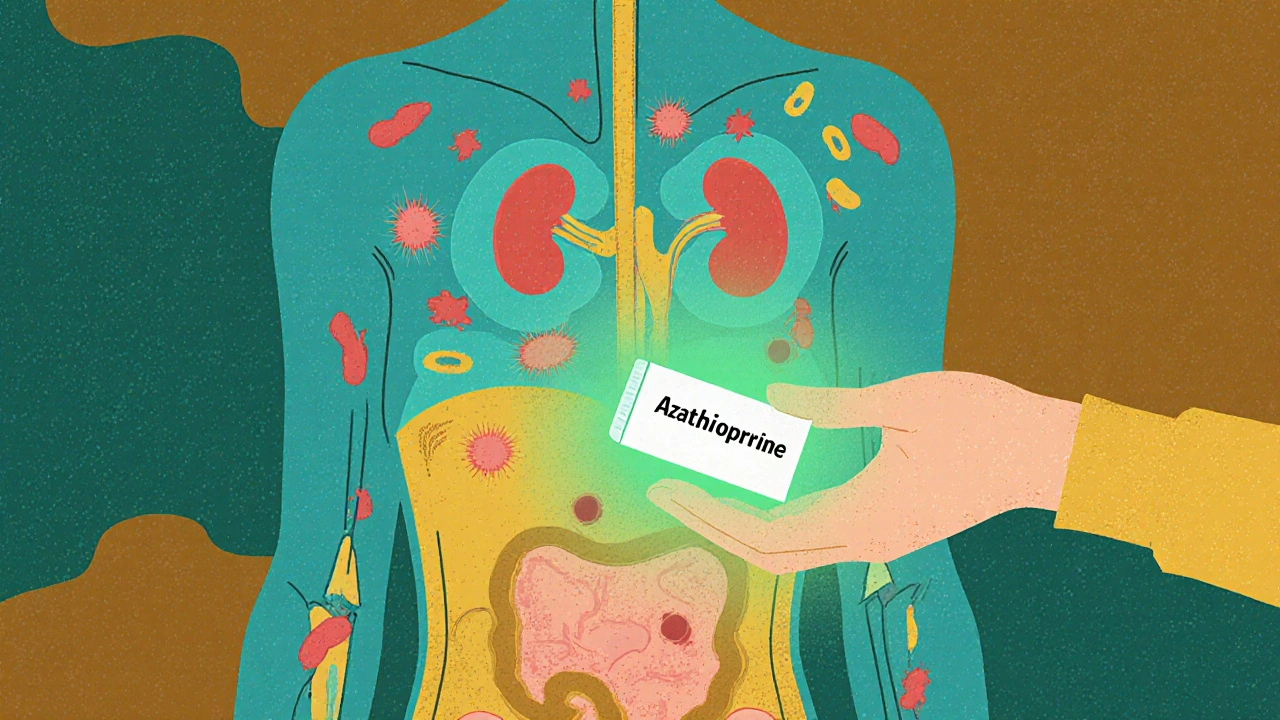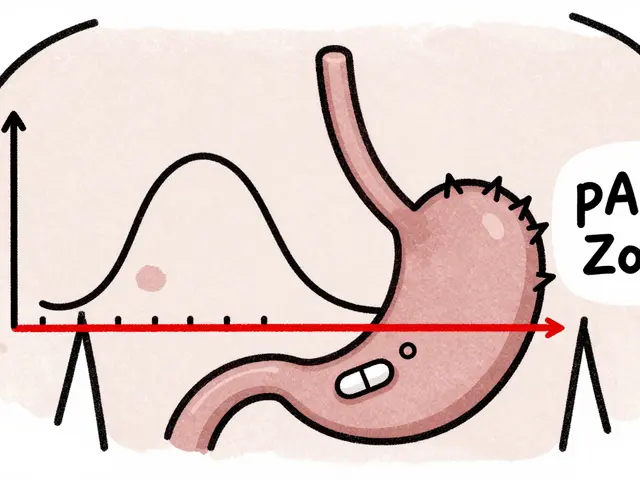Azathioprine — what it does and what you need to know
Azathioprine is an immunosuppressant medicine used to calm an overactive immune system. Doctors commonly prescribe it for autoimmune conditions (like inflammatory bowel disease, rheumatoid arthritis, and some vasculitis) and to prevent transplant rejection. It slows immune cells so inflammation drops, but that also raises infection and blood-count risks.
How it’s used and typical dosing
Treatment goals and doses vary by condition. A typical starting range is about 1–3 mg/kg per day, adjusted by your doctor. Effects often take several weeks to months — it isn’t a fast-acting drug. Don’t stop or change the dose without talking to your prescriber.
Before starting, many clinicians test TPMT (thiopurine methyltransferase) activity. Low TPMT increases the chance of severe bone marrow suppression, so testing helps keep you safe.
Side effects, monitoring, and interactions
Common side effects include nausea, fatigue, and mild liver enzyme changes. Serious but uncommon problems are low white blood cell counts, severe infections, or pancreatitis. That’s why regular blood tests matter.
Typical monitoring plan: complete blood count and liver tests every 1–2 weeks for the first month or two, then monthly until stable, and less often after that if everything stays normal. If you get a fever, sore throat, unusual bruising, or severe abdominal pain, contact your doctor right away.
Azathioprine has important drug interactions. Allopurinol (for gout) can raise azathioprine levels and cause dangerous bone marrow suppression — doctors usually cut the azathioprine dose to about 25–33% if both are needed. Live vaccines should be avoided while on azathioprine. Tell any provider or dentist that you take it, especially before procedures or new prescriptions.
Pregnancy and breastfeeding come up often. In many cases, azathioprine is continued in pregnancy when the mother’s condition requires it, but discuss risks and alternatives with your clinician. Decisions are individual — don’t guess.
Practical tips: store pills in a cool, dry place, take at the same time each day, and keep a list of your meds. Carry a note or medical ID that you’re on an immunosuppressant in case of emergency. If you buy medicine online, use reputable pharmacies that require a prescription and show clear contact details and licensing.
Questions to ask your doctor: Do I need TPMT testing? How often will my blood be checked? What signs should prompt urgent contact? Can I have vaccines or plan a pregnancy while on this drug? Good answers make treatment safer and less stressful.
Azathioprine can be very effective when used carefully. With the right monitoring and clear communication with your healthcare team, you can manage risks and get the benefits you need.

- Oct 29, 2025
- Posted by Cillian Osterfield
How Azathioprine Works in Lupus Treatment: A Clear Guide
Azathioprine is a proven, affordable immunosuppressant used to control lupus flares and reduce steroid dependence. It works slowly but effectively, making it a long-term staple for many patients, especially those with kidney involvement or planning pregnancy.

- Jun 18, 2023
- Posted by Cillian Osterfield
Azathioprine and the Risk of Raynaud's Phenomenon: A Comprehensive Review
In a recent comprehensive review, I came across some intriguing findings on the relationship between Azathioprine and the risk of Raynaud's Phenomenon. For those who may not know, Azathioprine is an immunosuppressive medication often used in treating autoimmune diseases, while Raynaud's Phenomenon is a condition that causes the blood vessels in extremities to constrict when exposed to cold or stress. According to the review, there seems to be an association between the use of Azathioprine and an increased risk of developing Raynaud's Phenomenon. This is important information for both patients and healthcare providers to consider when weighing the benefits and risks of using Azathioprine. Further research is needed to better understand the underlying mechanisms and potential ways to mitigate this risk.

- May 9, 2023
- Posted by Cillian Osterfield
Azathioprine and Probiotics: Improving Gut Health and Immunity
In my recent blog post, I discussed the intriguing relationship between Azathioprine and probiotics in enhancing gut health and immunity. Azathioprine, an immunosuppressive drug, has been found to work more effectively when combined with specific probiotics. These probiotics help balance the gut microbiome, which in turn plays a crucial role in our overall immune response. Furthermore, numerous studies have highlighted the potential benefits of combining Azathioprine with probiotics for those suffering from autoimmune diseases. As a result, this fascinating connection may offer new hope for patients and pave the way for improved treatment options in the future.
Categories
- Health and Wellness (72)
- Medications (71)
- Health and Medicine (28)
- Pharmacy Services (12)
- Mental Health (9)
- Health and Career (2)
- Medical Research (2)
- Business and Finance (2)
- Health Information (2)
Latest Posts
©2026 heydoctor.su. All rights reserved





